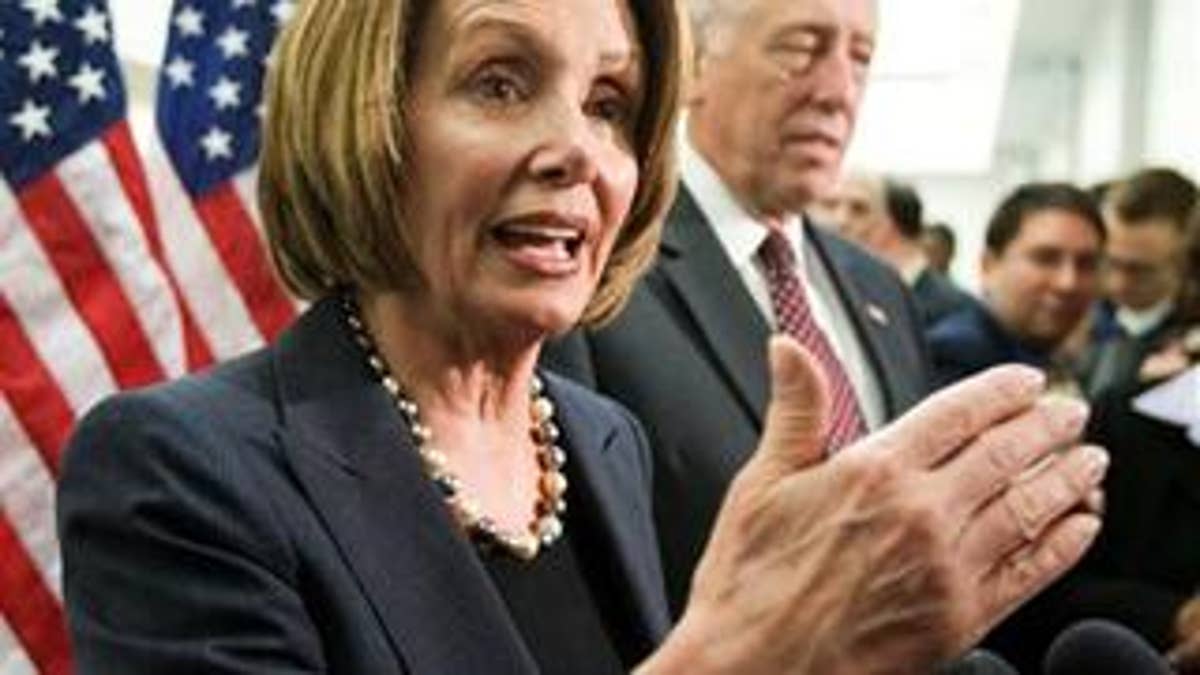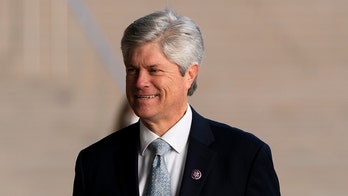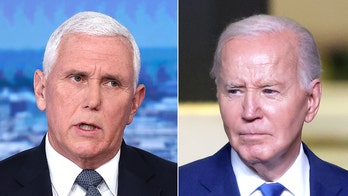
Senate passage of an $838 billion stimulus bill triggered an intense round of late-night bargaining on Tuesday, with the White House and key congressional Democrats seeking agreement on a final compromise aimed at combatting the worst economic crisis in decades.
Democratic officials said that in deference to Senate Republican moderates, it appeared the bill that eventually goes to President Barack Obama would be in the range of $800 billion -- less than the Senate measure or a different bill that cleared the House several days ago.
These officials added that while numerous details remained to be worked out, it appeared a major expansion of an existing tax break for homebuyers, approved in the Senate last week, would be jettisoned. There was also pressure to scale back a Senate-passed tax break for new car buyers, according to these officials, and to drop a provision limiting compensation for top executives of companies receiving federal bailout assistance.
All three provisions add to the cost of the bill, and in the case of limitations on executive compensation could presumably be passed in different legislation later in the year. The officials who disclosed details of the talks did so on condition of anonymity, saying they were not authorized to discuss them.
The late-night negotiations reflected an urgency on the part of the White House and the Democratic-controlled Congress to move quickly against a recession that has sent joblessness soaring. The officials added that bargainers hoped for an agreement as early as Wednesday.
Senate Majority Leader Harry Reid, a member of the conference, downplayed the difficulty of the task ahead.
"I think the differences really are fairly minor, and we're going to work very hard to resolve those differences as soon as we can," he said, vowing to get a bill to Obama's desk in short order.
But almost all Republican lawmakers -- some of whom will be part of conference committee talks -- still oppose the plan as written. And House and Senate Democrats have each pursued different spending priorities that they don't want to change.
For instance, the Senate version includes a $70 billion adjustment to the Alternative Minimum Tax aimed at preventing the middle class from getting stuck paying higher taxes. The House version does not.
The Senate version contains $35.5 billion to give new homebuyers a $15,000 tax credit. The House includes $2.6 billion for a significantly scaled-down version of that program.
And the Senate version contains $11 billion to make interest payments on new auto loans and automobile sales taxes deductible. The House does not.
On the flip side, the House version has $40 billion more than the Senate version for education aid to states. Plus the House version has an additional $19.5 billion for school and university construction that the Senate killed.
Obama, who has largely steered clear of specifics when he talks about the spending and tax cut plan, said Monday he wants to restore some of the Senate cuts in funding for education.
The massive package is a blend of spending, tax cuts and incentives that both the administration and Democrats in Congress hope will create jobs and stimulate the economy.
Obama hit the road this week to settle public doubts about the program, speaking at town hall-style events -- in Indiana on Monday, and in Florida on Tuesday.
"We've had a good debate. That's part of what democracy is all about. But the time for talking is over," Obama told a Fort Myers, Fla., crowd Tuesday. "Folks here in Fort Myers and across America need help, they need action, and they need it now."
He also held a prime-time press conference Monday night where he said the plan is needed to prevent an all-out "catastrophe."
Obama Chief of Staff Rahm Emanuel and budget director Peter Orszag joined a meeting with key senators Tuesday afternoon to discuss the coming negotiations. With all sides of the stimulus talks coming to the table with different priorities, the Capitol Hill discussions could last through Obama's Feb. 16 President's Day deadline.
"Thursday, Friday, Saturday, Sunday, Monday and Tuesday and maybe Wednesday and Thursday next week may be needed to pass" the package in both chambers, House Majority Leader Steny Hoyer said.
Hoyer's statement indicated the potential challenges facing House and Senate negotiators as they try to bridge differences and create a single, unified measure to send to Obama.
One concern is that altering the Senate bill could risk the support of the three key Republican senators: Sens. Olympia Snowe and Susan Collins of Maine and Pennsylvania's Arlen Specter.
Specter has suggested that the House approve something very close to the Senate version of the bill. And while Hoyer said he was "shocked" that any senator would make demands about the legislation, the conference will be surely be driven by the moderates who are supporting the Senate compromise.
No Republicans supported the House version of the bill, and Senate Republican leaders continued to speak out against it on Tuesday.
"This paints a picture of the Europeanization of America," Senate Minority Leader Mitch McConnell, R-Ky., said.
"There are a lot of earmarks, and a lot of wasteful Washington spending in this bill," said Republican Whip Jon Kyl, R-Ariz.
The senators who are members of the conference are Reid, Max Baucus, D-Mont., Daniel Inouye, D-Hawaii, Thad Cochran, R-Mo., and Charles Grassley, R-Iowa. The House is sending Reps. David Obey, D-Wis., Charles Rangel, D-N.Y, Henry Waxman, D-Calif., Jerry Lewis, R-Calif., and Mike Camp, R-Mich., to the meetings
FOX News' Trish Turner, Carl Cameron and the Associated Press contributed to this report.




